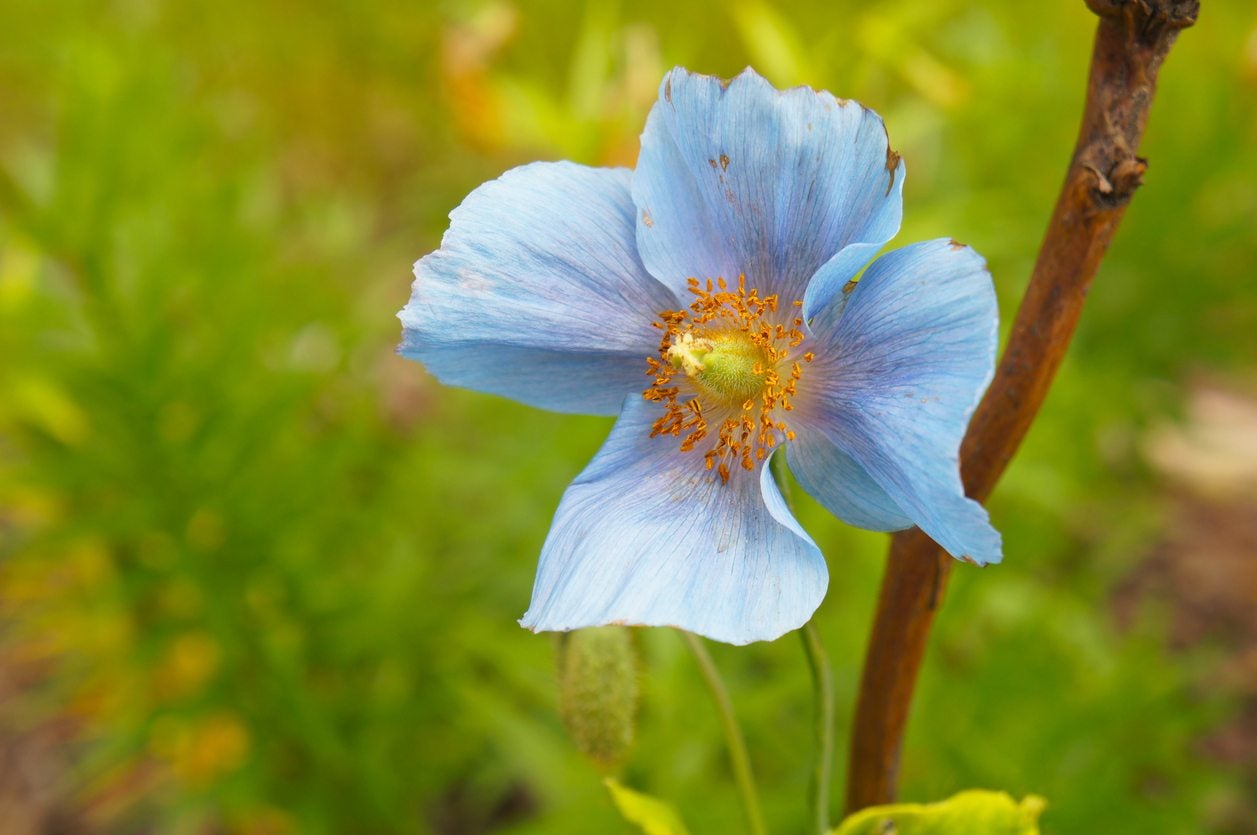Blue Poppy Info: Tips For Growing Himalayan Blue Poppy Plants


The blue Himalayan poppy, also known as just the blue poppy, is a pretty perennial, but it has some specific growing requirements that not every garden can provide. Find out more about this striking flower and what it needs to grow before adding it to your beds.
Caring for Blue Poppies – Blue Poppy Info
Blue Himalayan poppy (Meconopsis betonicifolia) looks just like you might expect, like a poppy but in a striking shade of cool blue. These perennials grow tall, 3 to 5 feet (1-1.5 m.) in height and have hairy leaves like other types of poppies. The blooms are large and deep blue to purple in color. While they do resemble other poppies, these plants are not true poppies at all. The climate and conditions have to be just right to grow Himalayan blue poppy plants successfully, and even then it can be challenging. The best results are seen in areas that are cool and moist with excellent drainage and soil that is slightly acidic. The best types of gardens for blue poppies are mountain rock gardens. In the U.S., the Pacific Northwest is a good region for growing this flower.
How to Grow Blue Poppies
The best way to grow blue Himalayan poppy is to start with the best environmental conditions. Many varieties of this kind of poppy are monocarpic, which means they flower just once and then die. Know which type of plant you are getting before you try to grow a true perennial blue poppy. To grow blue poppies successfully, give your plants a partially shady spot with rich soil that drains well. You will need to keep the soil moist with regular watering, but it cannot get soggy. If your soil is not very fertile, amend it with organic matter before planting. Caring for blue poppies has a lot to do with what you have to work with in your current environment. If you just don’t have the right setting, there may be no way to grow them beyond one season.
Sign up for the Gardening Know How newsletter today and receive a free copy of our e-book "How to Grow Delicious Tomatoes".

Mary Ellen Ellis has been gardening for over 20 years. With degrees in Chemistry and Biology, Mary Ellen's specialties are flowers, native plants, and herbs.